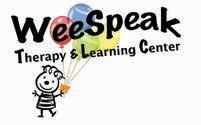
7 minute read
School or ABA: Top Seven Things to Consider
Top Seven Things to Consider
by Angelica N. Gray, MA, BCBA, LBA
Advertisement
The decision to place your child in full-time ABA or in school can be a difficult decision for many families. Each child presents with a unique personality, areas of strengths, and goals to work toward. Classroom structures and teachers vary within the same school or across the same district and the educational setting can have pros and cons for each child’s unique educational needs. Many areas that are important to assess when making this decision may not seem as important and are often overlooked by more pressing and urgent considerations (problem behaviors, sensory seeking, stereotype behaviors). Below, I’ll offer an overview of the areas that you want to discuss with your child’s team when deciding their learning environment.
1. Problem Behavior is the most significant barrier to a child not being able to learn and maintain placement in a public school setting. Behavior that impedes the learning of the child and of others is the first barrier to consider when discussing placement. If behaviors pose harm to the safety of the child and/or other children or adults (self-injurious behavior, aggressive behavior, property destruction, or elopement) ABA placement is recommended. ABA Therapy can help to determine the behavior function and develop a plan that can decrease problem behavior. As behavior severity and frequency decrease, the plan can be generalized to home and school settings.
Schools often address problem behavior through conducting assessments and developing plans, but it is often difficult to adhere to those plans and intervene effectively due to classroom size, lack of crisis management training, or lack of individuals who are trained to assist in the school’s established crisis management protocols.
Children who engage in maladaptive behaviors and are not a danger to themselves and can be easily redirected, have low frequency and low severity target behaviors, or who may need minimal supports with getting their needs met within the school environment, would be ideal for a school placement.
2. Schedule of Reinforcement. School placement would be recommended for children who are able to work independently for an average of 20 minutes intervals throughout the day without requiring a break (ie, reinforcement). Children who require more frequent breaks may need a 1:1 setting that an ABA placement could offer and allows for additional breaks. Schools often attempt to increase “time on task” for children, however, if there are no additional support staff to monitor, provide reinforcement, and systematically increase, these goals will often go unmet.
Children who are able to work independently for an average of 20 minutes and are able to request for their needs to be met or have the ability to access needed reinforcement without adult intervention would perform well in a school environment.
3. Rate of skill acquisition. A child who can model or imitate the positive behaviors of peers, follow a teacher’s instructions within a group setting, and who can acquire skills without requiring a lot of repeated practice, would be recommended for school placement. The children we work with in our center sometimes require 200–500 opportunities to work on a skill before they become fluent in it. When a child is able to attend school but falls significantly behind classmates, it is a sign that more practice is needed with the material in order for them to know the material fluently. They often need more than a few examples and practice problems before they are able to complete the task independently. Some children may benefit from a split schedule of school and ABA in order to practice skills 1:1 and become fluent.
4. Requesting. One of the most common ignored barriers that we see are children who do not make their needs known within the school setting. Examples of this are when a child doesn’t ask for help, clarification of assignments, or assistance when work is too hard. These students may not request bathroom breaks or let the teacher know if they are hot/cold, thirsty/hungry, in pain, or other needs. Additionally, they will not ask for the removal of aversive stimuli (ie, someone is bullying them, lights are too bright, etc.). In these instances, a partial or half-day ABA placement would be recommended in order to teach the child self-advocacy skills so that they can become more successful in requesting help to meet their academic and social needs within the educational setting and to reduce the likelihood that they will become victims of bullying.
A second issue that is seen with the lack of requesting is that it can be closely tied to high-severity and high-frequency problem behaviors. When a child does not request, an ABA program can be beneficial in establishing a mode of communication for non-vocal children to begin communicating using single words either through the use of sign language, vocalization, pictures, or a speech communication device.
Children who are assertive and will request (using phrases or full sentences) what they need and want as well as their likes and dislikes will most likely benefit in a school placement.
5. Labeling. The ability to label items plays a critical role in conversation and language arts (reading, writing, and comprehension) skills. Children with a fluent foundation in labeling (including naming the parts of items, categorizing and naming the function of items will have a stronger foundation to build on
A child who can name and categorize hundreds of items (by features, functions, and class), as well as talk about them in their relation to other items, is more likely to succeed with activities and tasks that would be assigned within a school setting.
6. Social. Parents should definitely consider how their child is interacting with peers when considering school placement. Some children may have a desire to make friends, but not know the steps to do so, while other children may be socially withdrawn and have no interest in their peers. Social skills are an important area to consider because children with poorer social skills may be singled out for bullying or experience depression or frustration when they are not able to make friends. Although ABA Therapy is 1:1, our center promotes the development of social skills by having group activities and games where children are initially assisted by technicians to participate within those settings and the technicians fade out as the child becomes more successful with social interactions.
Children who can navigate the complexities of social situations and have the ability to make friends, participate in reciprocal communication, and shared interests would benefit from attending school.
7. Daily Living Skills. Children who are not independent and fluent in completing daily living behaviors (toileting, eating, showering, etc.) would benefit from a comprehensive ABA program. Research shows that individuals who are not able to complete their own hygiene routines and require assistance are more susceptible to become victims of physical and/or sexual abuse. In our programs, we assess daily living skills with the goal of increasing independence in this area.
We recommend school placement when children are able to independently toilet and eat without needing 1:1 adult assistance.
This list is in no way a complete list, and we recognize that each child (and their educational supports) will vary. This list was created from what our clinical team has experienced to be some of the most salient barriers when assessing school readiness. We encourage all families to have open discussions with all members of your child’s treatment team about the areas identified here as you navigate your child’s readiness for school.
To learn more about The Indiana Institute for Behavior Analysis and our services, please visit our website at www.tiiba.org or give us a call in Indianapolis at 317-388-8131 or in Evansville at 812-636-1533.

Looking for physical, occupational, or speech therapy for kids? Choose a family-friendly therapy center that makes parent education a priority.
According to the Center for Disease Control, 15% of children between ages 3 and 17 have encountered some form of a developmental delay.
Is your child developing at the "right" pace? REQUEST A CHILD DEVELOPMENT EVALUATION TODAY!
WeeSpeak Lafayette • 765-446-8300 35 Executive Dr, #5 • Lafayette, IN 47905 weespeaktlc@gmail.com • weespeaktlc.com
Special Needs Planning & Elder Law Attorney

Here to help you put plans in place to give you peace of mind.
Elizabeth A. Homes is a special needs planning and elder law attorney. She has been licensed and practicing law since May of 2014. Her practice at the Law O ce of Elizabeth A. Homes LLC is focused on Special Needs Planning, Guardianships, Elder Law, Estate Planning, and Probate Work. This includes Wills, Powers of Attorney, Advanced Directives, Trusts, Trust Administration, Medicaid Planning, Special Needs Planning, Guardianship, and Probate. She is admitted to practice law in the State of Indiana.
We ask "What If?" so you don't have to ask "What Now?"
Elizabeth A. Homes, Esq., MBA ehomeslaw.com | 317-660-5004 elizabeth@ehomeslaw.com









